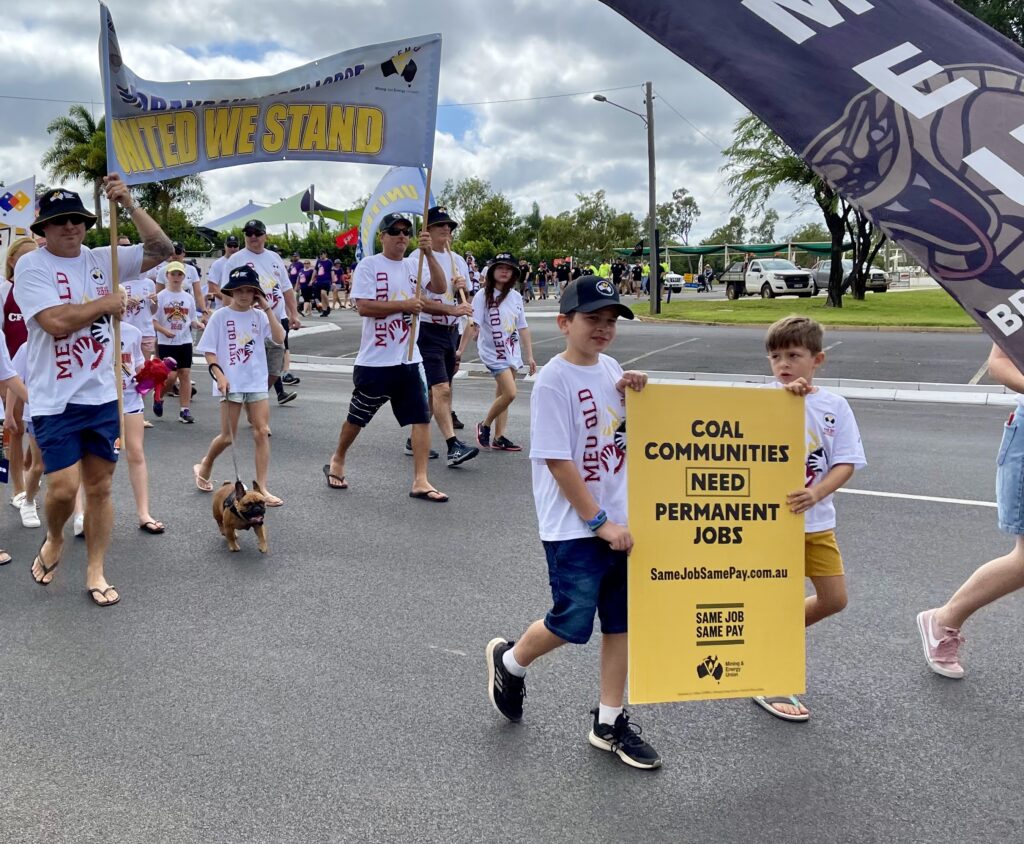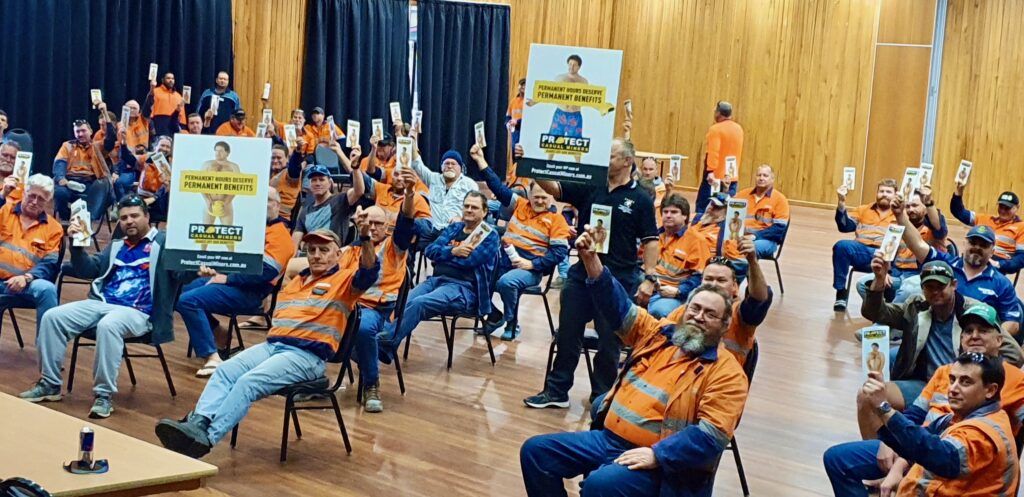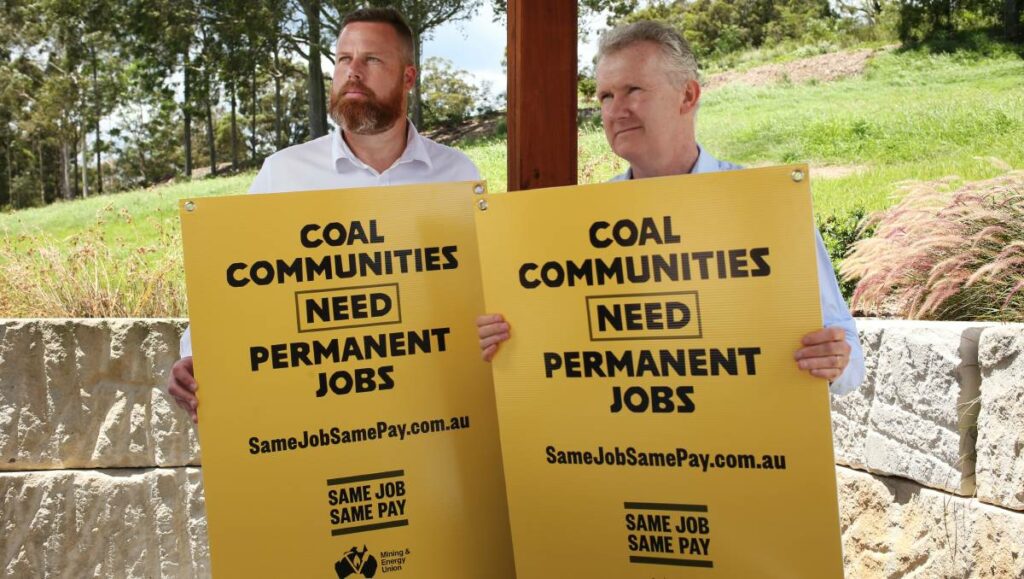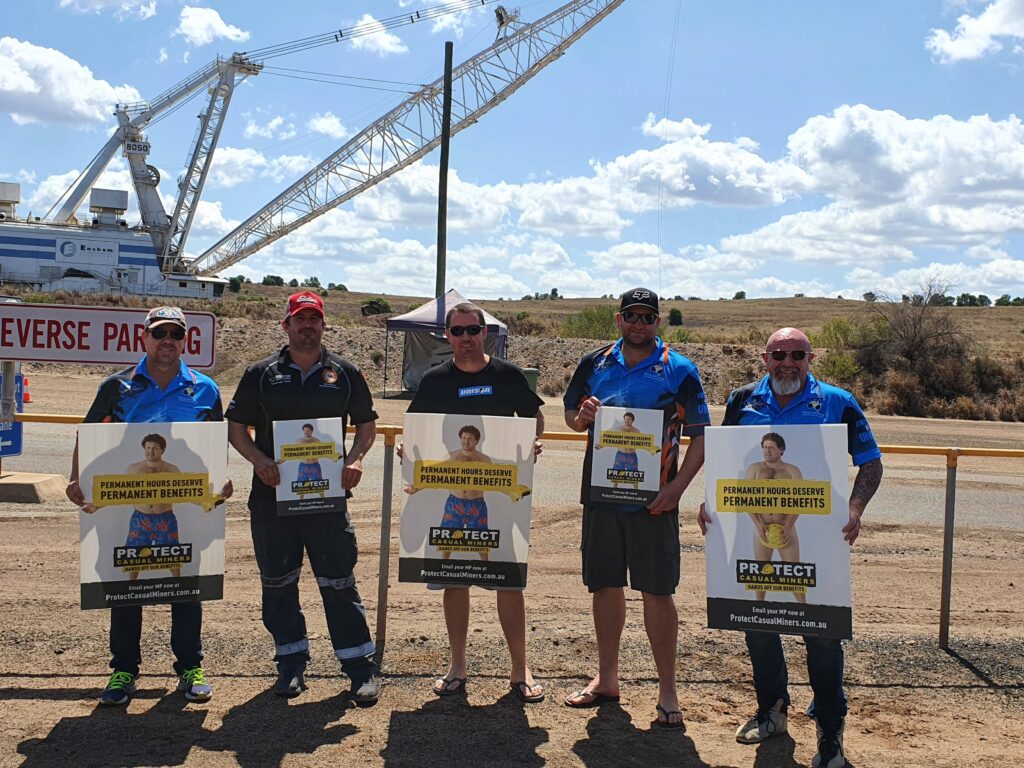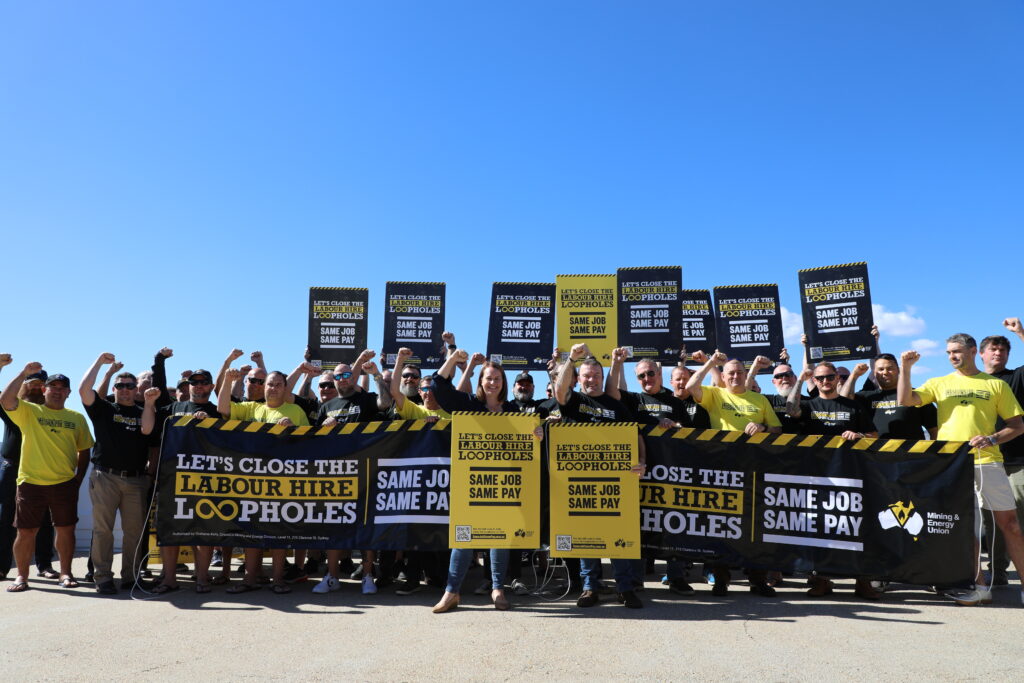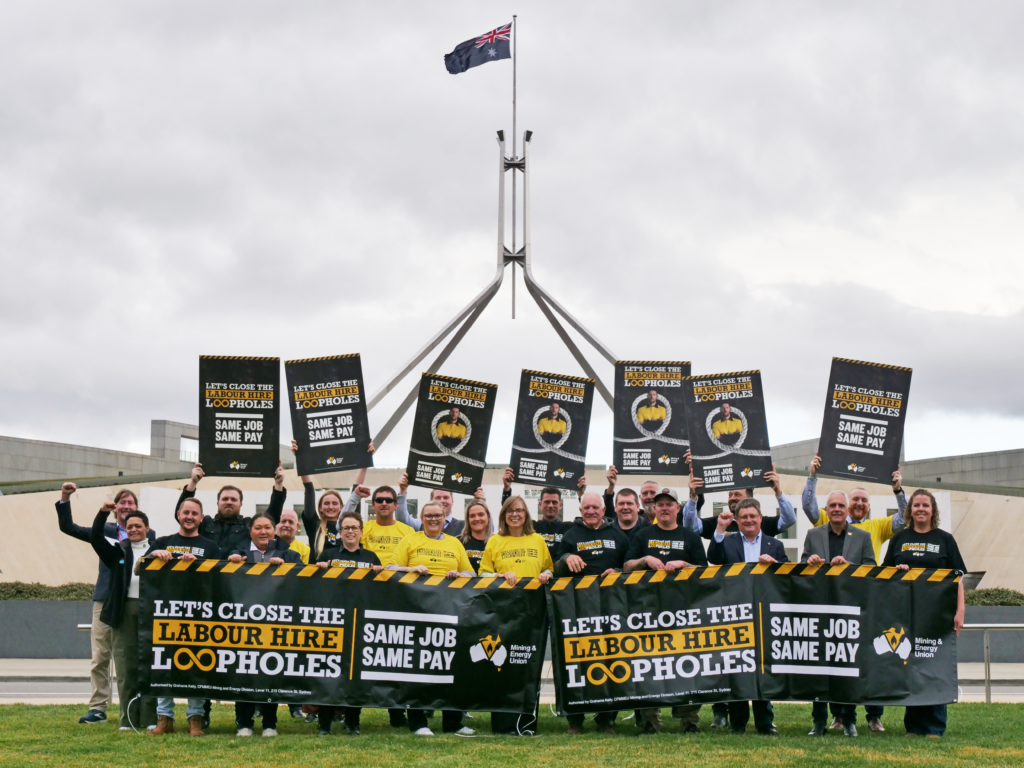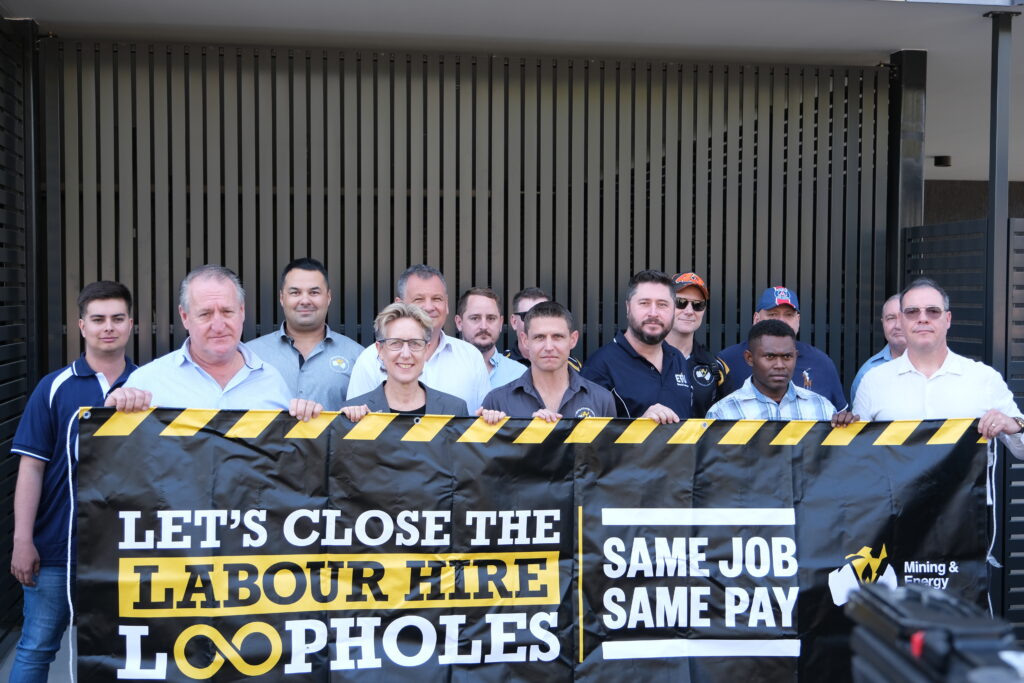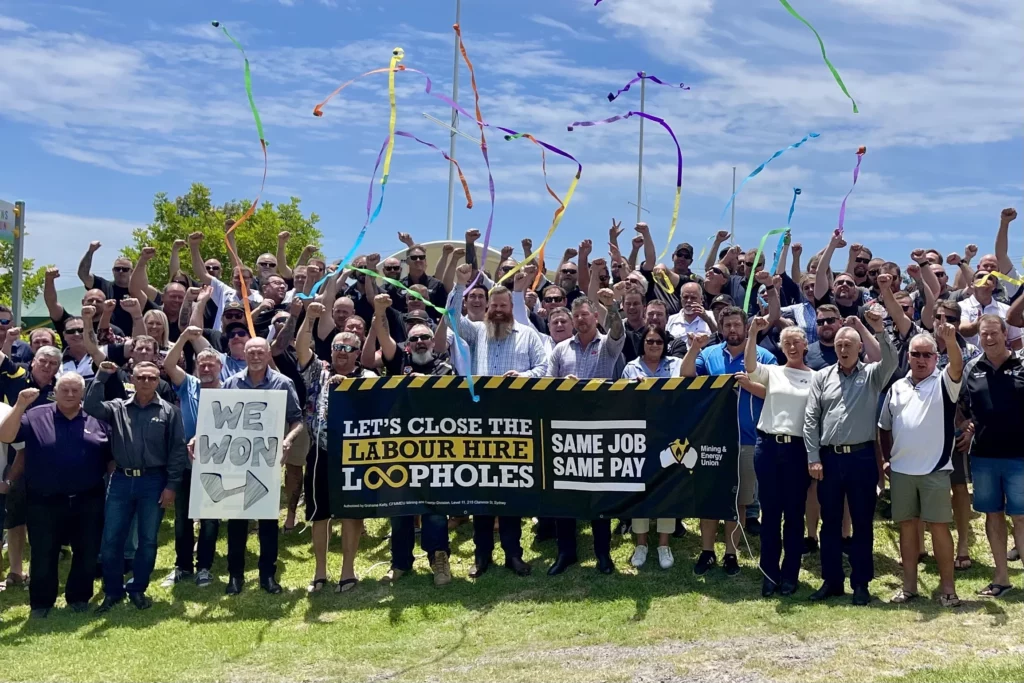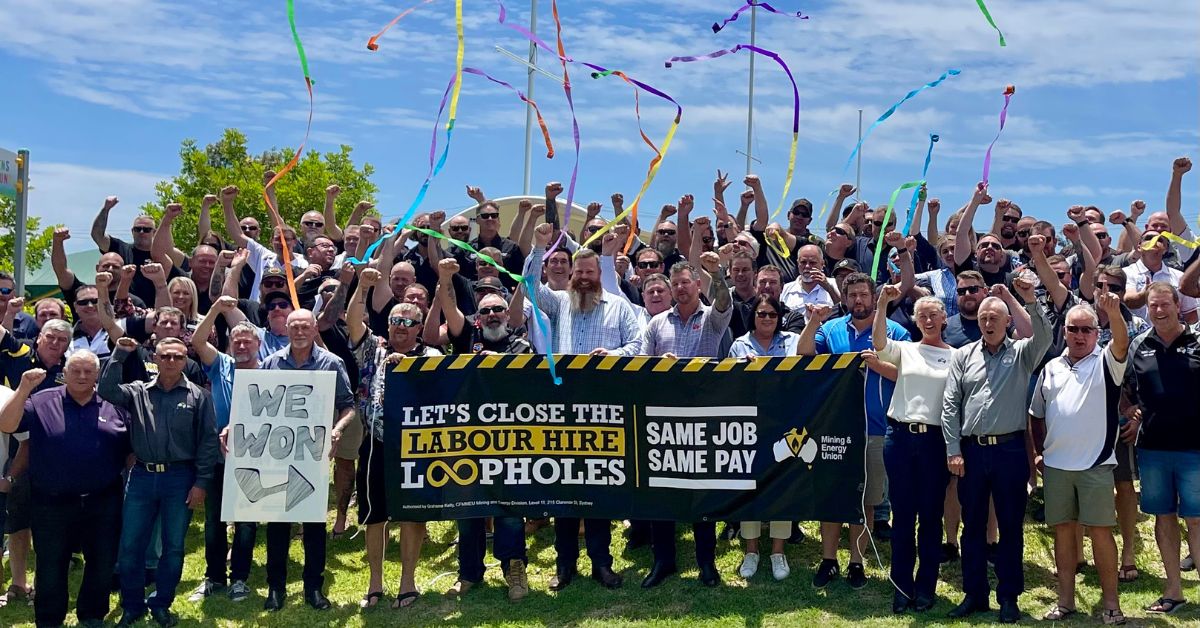December 19, 2023
What a way to end 2023! We answer your questions about labour hire measures in the Closing Loopholes Bill.
What happened?
On 7 December 2023, the Fair Work Legislation Amendment (Closing Loopholes) Bill 2023 passed through the Senate, containing provisions that prevent companies from undercutting Enterprise Agreements to pay labour hire workers less.
How did the Bill pass?
The legislation passed after the Closing Loopholes Bill was split into two parts, with Same Job Same Pay passing this year in the first part, alongside other important measures like the criminalisation of wage theft and industrial manslaughter, and stronger rights for workplace delegates.
The legislation passed after the Albanese Government secured the support of the Jacqui Lambie Network, David Pocock, the Greens and Lydia Thorpe to pass large parts of the Closing Loopholes Bill.
As recently as this month, Hunter coal mineworkers Clare, Ben and Adam travelled to Parliament House to share their stories with crossbench Senators on how closing the labour loopholes affects them and their workmates in the Hunter Valley. We are grateful that the Senators listened to their stories and chose to back ordinary Aussie workers against billion-dollar multinationals

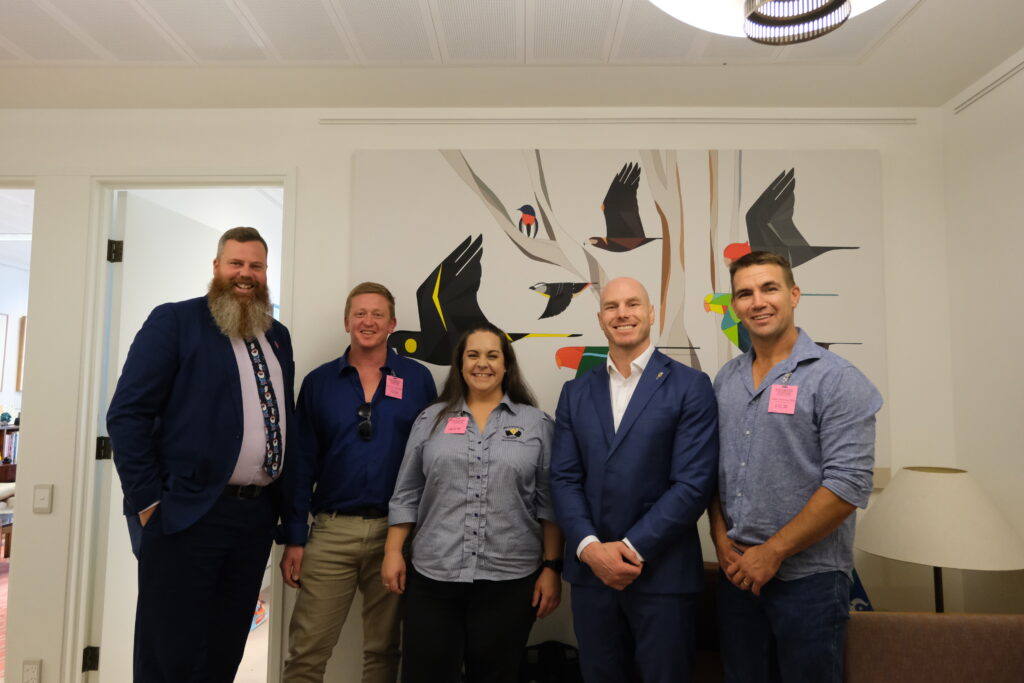

The Coalition and One Nation did not support the Bill, with the Coalition declaring they are on the side of employers and One Nation arguing that there is no labour hire loophole to close.
How will the laws deliver fairer wages?
At a worksite where an Enterprise Agreement is in place covering direct employees, the new laws would allow for applications to be made to the Fair Work Commission (FWC) for an order that labour hire employees must be paid at least what they would receive under a host’s EA.
There are exemptions for registered trainees and apprentices, short-term placements, small businesses and genuine service contractors.
The Fair Work Commission will then make an assessment that a Same Job Same Pay order would be fair and reasonable – including whether labour hire workers are performing the same work as EA employees – and can make an order setting a ‘Protected Rate of Pay’.
The ‘Protected Rate of Pay’, which sets minimum pay rates in line with the relevant Enterprise Agreement on site, is how Same Job Same Pay would be delivered at a worksite.
Additionally, we are optimistic that once the financial incentive for outsourcing jobs is removed through ensuring equal wages, then mine operators will employ more workers directly.
How do we apply for a ‘Protected Rate of Pay’ aka Same Job Same Pay?
The MEU will apply to the Fair Work Commission for Same Job Same Pay on behalf of members.
We will make applications at eligible workplaces based on circumstances at the site and in consultation with MEU labour hire members. We will begin making applications as soon as possible in 2024.
Same Job Same Pay orders issued by the Fair Work Commission will commence operation from November 2024.
What is the difference between labour hire and service contractors?
Under the Closing Loopholes Bill, the Fair Work Commission will apply a test to determine whether workers are considered labour hire or ‘service contractors’. In general, labour hire means workers supplied by a labour hire company to perform labour in roles which are supervised or managed by the host. In contrast, the Commission will assess whether a company is a service contractor based on a number of facts, including whether a company is supplying their own supervisors and equipment for use by the workforce, and whether they perform specialist work on a site.
We expect employers to misrepresent the nature of their engagement of workers in opposing our applications, however the Fair Work Commission will ultimately determine whether a Regulated Labour Hire Order is applicable in any circumstance. We are confident that many workers in the mining industry can be classified as ‘labour hire’ and we will be encouraging labour hire workers to join the union to strengthen our applications.
What else is in the Closing Loopholes Bill?
The Bill establishes stronger rights for union Delegates. Importantly, the Bill provides for specific rights for Delegates to represent the industrial interests of union members and potential members, including in disputes. This provides for a more active and recognised role for Delegates to be a representative, not just a support person or a shoulder to cry on.
The Bill also provides for reasonable access to paid training for Delegates. This will be helpful for Delegates who won’t have to take their own leave to undertake training.
Additionally, Delegates will have more reasonable access to communicate with members and potential members about workplace matters.
The Bill also criminalises wage theft. Closing Loopholes Part 2 will address a range of other matters including stronger rights for casuals and gig workers and will come before the Parliament in early 2024.
What next?
There has never been a better time to be involved and be talking to your workmates about joining to put your worksite in the best position to be prioritised for an application made by the MEU.
Thank you to everyone who has contributed or supported the campaign over the years. This law is an extraordinary accomplishment and a fantastic Christmas present for Australian workers.
We will keep members up to date with next steps as we make fairer wages a reality.
